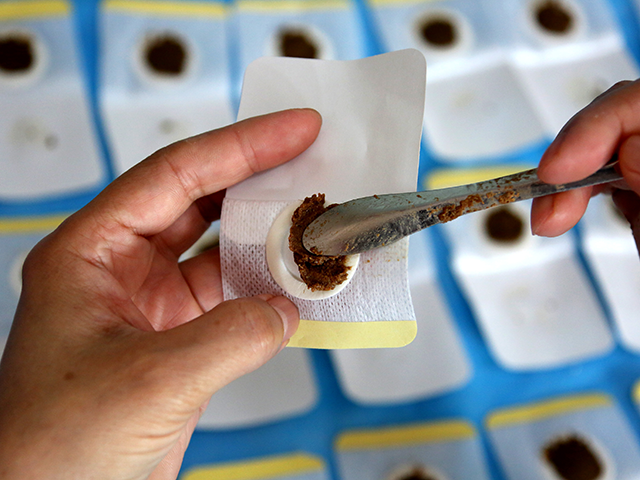The debate over using remedies from traditional Chinese medicine (TCM) to treat the Wuhan coronavirus grew more vicious this week, as Chinese state-controlled social media denounced doctors who questioned the effectiveness of the highly profitable, heavily government-promoted herbal concoctions as traitors and foreign agents.
The Chinese Communist Party has for years pushed TCM as a financially rewarding cultural export. TCM practitioners made many claims that their products relieve coronavirus systems using their ancient recipes, or even cure Chinese coronavirus outright.
One example, in particular, stands out: an herbal cure called Lianhua Qingwen, pushed so assiduously by Communist Party heavyweights as protection against the Chinese coronavirus that millions of doses were shipped to Shanghai, the brutally locked-down metropolis whose residents are desperately short on food and real medicine.
A few high-profile Chinese doctors questioned the wisdom of sending boxcars full of herbal remedies to a city on the brink of starvation and were met with a torrent of abuse from commenters who denounced them as stooges of foreign governments and corporations. The Chinese Communist Party closely controls all legal social media outlets in the country and censors any commentary it disagrees with.
The South China Morning Post (SCMP) reported Friday that some encouraging comments were posted as well, from people who wanted TCM examined as a “scientific issue” rather than “a matter of national sentiment or a political issue,” but some of the criticism was quite venomous:
“[TCM] affects your interests. You have been discrediting TCM since your establishment so as to open up the domestic [Chinese] market for your foreign capital [investors],” said one comment with 1,432 likes.
A leading Chinese neurologist, Rao Yi, was also criticized after posting on WeChat last Sunday, saying it was inappropriate to use traditional Chinese medicine whose efficacy had not been proven. Some Weibo users said Rao was ignorant about TCM and its effects amid the pandemic.
…
Gu Su, a political scientist at Nanjing University, said some of the vocal critics had turned scientific discussions into an ideological war of words.
“To disapprove of traditional Chinese medicine is seen as a betrayal of the country and those people are Washington’s lackey,” he said. “Those people take a similar stand on almost everything … Now we have many such polarized issues, domestically and internationally.”
As the SCMP observed, there are cult-of-personality issues at play in addition to Communist Party dogma and the financial interests of politically connected companies, as dictator Xi Jinping has embraced TCM as a “treasure of Chinese civilization” that could help with “the rejuvenation of the great Chinese nation.”
Xi’s ardent followers are in no mood to tolerate uppity doctors asking pointed questions about whether the stuff actually works. Some TCM remedies might be helpful for relieving symptoms of Chinese coronavirus infection.
Critics insist the products in question have not undergone proper clinical trials, although a few are now in progress, such as a study of Lianhua Qingwen announced by Singapore’s Health Sciences Authority (HSA) this week. Pending the outcome of this study, the HSA advises against using Lianhua Qingwen as a treatment for Chinese coronavirus.
“The U.S. FDA in 2020 sent at least six warning letters to companies selling Lianhua Qingwen and other TCM-based products purported to be Covid cures, telling vendors that the products were unapproved and misbranded drugs,” Bloomberg News noted.
TCM advocates argue that modern medicine is simply incapable of judging the effectiveness of these ancient cures, whose components supposedly interact with each other, the human body, and the surrounding environment in a manner that is not properly measured by clinical studies. Clinicians find this argument unpersuasive.

COMMENTS
Please let us know if you're having issues with commenting.